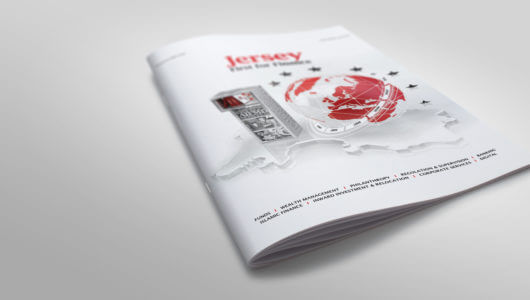A Limited Partnership (LP) is also an attractive vehicle for various tax planning purposes. It can be used, for example, as a method of holding assets situated in another jurisdiction. It can provide a useful method of trading as a partnership where it is desirable to have the flexibility to introduce partners as passive investors on a limited liability basis.
An LP seeks to combine the flexibility and tax transparency offered by a partnership structure, with the benefit for the investors of the limited liability offered by a company. This, combined with the ease of distribution of profits and the fact that capital contributions can be returned to partners before the partnership is dissolved, have made the Limited Partnership particularly beneficial.
Another desirable feature of an LP as a vehicle is the confidentiality it provides. Neither the names and addresses of the investors, nor the partnership agreement, are matters of public record and there is no requirement to file annual returns (and thus no annual fee), to produce or file accounts, or to appoint auditors (unless the partnership agreement provides for this).
Yet most often, the main attraction of a Limited Partnership is its tax transparency. The profits and losses of the Limited Partnership are attributed to the partners themselves, who are taxed according to their share of such profits and losses. In particular, a partner can offset their share of any losses against profits from other investments and take advantage of any double tax treaties between their country of residence and that of the investment.
Limited Liability Partnership (LLP)
In 1998 Jersey introduced an additional form of partnership; The Limited Liability Partnership (LLP). An LLP is registered under the Limited Liability Partnership (Jersey) Law 1997. It has a separate legal personality distinct from its partners but is expressly not a body corporate. It allows all partners to be involved in the management of the partnership, whilst at the same time limiting their liability.
An LLP is aimed at businesses which are traditionally carried on as partnerships (such as medical or legal practices) or employee owned businesses. In 2012 the LLP regime was updated to remove the previous statutory requirement to maintain a £5 million financial provision throughout the life of the LLP. Instead, the LLP must now make an annual solvency statement. This change brought the Jersey LLP regime more in line with the UK’s LLP law.
In terms of confidentiality, like an LP, there is no requirement to file the partnership agreement or accounts. However, the declaration naming each partner will be a matter of public record. No Jersey tax is payable unless there is income arising in Jersey or one or more of the partners are resident in Jersey.
There is new draft LLP legislation due to come in to force during 2018, which will make Jersey’s LLP offering more attractive to businesses.
In 2011, Jersey further enhanced its partnership offering with the introduction of two innovative partnership vehicles; the Incorporated Limited Partnership and the Jersey Separate Limited Partnership. This has significantly enhanced Jersey’s partnership offering and means that clients now have the additional flexibility of a wide range of partnership vehicles available in a single jurisdiction.
Incorporated Limited Partnership (ILP)
An Incorporated Limited Partnership (ILP) is a partnership registered under the Incorporated Limited Partnership (Jersey) Law 2011. As the name suggests, this type of partnership is incorporated and it therefore has independent legal personality (it can contract, own assets and owe obligations in its own name). This incorporated status brings with it important considerations and obligations for the general and limited partners which are similar to those of the directors and shareholders of a company. For example, the general partner must act in good faith with a view to the best interests of the ILP and exercise care, diligence and skill, which mirror a director’s duty under the Companies (Jersey) Law 1991.
Unlike a Limited Partnership – which is normally dissolved immediately on the death, dissolution, bankruptcy or withdrawal from the partnership of the general partner – an ILP has perpetual succession and so may be particularly useful for succession and asset protection planning.
An ILP is not liable to Jersey income tax and its activities are considered to be carried on by its partners (i.e. it is ‘tax transparent’). Any distributions paid – whether to Jersey resident or non-Jersey resident partners – are made on a gross basis with no deduction to Jersey tax and the partners will be taxed in accordance with the tax regime applicable in their country of residence.
If the ILP conducts business in the UK it will be transparent for the purposes of UK income tax and corporation tax, so that each partner will be liable to tax on their share of the ILP income. However, for capital gains tax purposes, the ILP will have liability for any gains realised on the disposal of partnership assets (because it will hold those assets in its own name for the benefit of the partnership).
Separate Limited Partnership (SLP)
The Separate Limited Partnerships (Jersey) Law 2011 introduced the Separate Limited Partnership (SLP) to Jersey. In simple terms, an SLP is an LP with the ability to contract in its own name and sue and be sued in its own name. However, as it is not a body corporate it is not subject to the rules and regulations applicable to companies. This means that the mechanics for the creation and dissolution of an SLP are less formal than for an ILP and the general partner does not owe any statutory fiduciary duties to the partnership.
From a tax perspective, the SLP will be completely transparent in relation to UK income tax, corporation tax and capital gains tax, meaning that each partner will be liable to tax on their share of the SLP income or capital gain and not the SLP itself.
The range of partnership vehicles now available and the flexibility that they offer further highlight the attractiveness of Jersey as a jurisdiction. Jersey has a robust, modern and sophisticated legal framework which has enabled it to lead the way in delivering a comprehensive partnership regime, perfectly complementing the Island’s full range of other special purpose vehicles and delivering real choice for the client.
Summary comparison table:
| LP | LLP | ILP | SLP | |
| Separate legal personality | No | Yes | Yes | Yes |
| Body corporate status | No | No | Yes | No |
| General partner liability | unlimited | n/a | unlimited | unlimited |
| Limited partner liability | limited* | limited | limited* | limited* |
| Requirement to file partner names / partnership documents | No | Yes – partner names | No | No |
| Perpetual succession | No | No | Yes | No |
| Partnership itself liable to Jersey tax | No | No | No | No |
| Tax transparency (profits attributed to partners) – UK income / corporation tax | Yes | Yes | Yes | Yes |
| Tax transparency (profits attributed to partners) – UK capital gains tax | Yes | Yes | No | Yes |
| Accounts filing | No | No | No | No |
| Annual return filing / annual fee | No | No | No | No |
| Audit requirement | No | No | No | No |
*provided they have not participated in the management of the partnership. The Limited Partnerships (Jersey) Law 1994 provides a long list of activities which do not constitute such participation
Case Study
A client with a significant profile in the UK was developing technology connected to the fashion industry. Once developed, the client planned to license the technology in the UK but in the meantime, was particularly concerned about confidentiality and so was seeking to house the development and licensing activity in an offshore vehicle. Tax planning was not an objective of the structuring.
The client’s adviser proposed a Jersey Separate Limited Partnership, with a Jersey limited company acting as general partner and the client and his associates acting as limited partners.
The advantage of this structure (compared to a simple company structure) was that there was no need to register at Companies House or to file accounts. Given the confidential nature of the intellectual property (IP), this feature was particularly attractive to the client. The partnership model also lent itself particularly well to the nature of the business model (licensing of IP) with the flexibility to add additional limited partners as passive investors in the future. The structure is transparent from a tax perspective with all income / losses and gains being attributed to the limited partners.
Julie Fairclough, Director and Head of Corporate Services, ZEDRA in Jersey.
Julie’s specialisms include corporate services, corporate governance, residential and commercial property and strategic change. She is a qualified accountant with over 18 years’ experience driving strategic growth through planned change and programme management for leading financial services organisations.
She has held a number of Executive Director positions for leading international finance companies. In 2009, she set up and led a UK-wide transformation programme across the operations of one of the largest banks in the world. Four years later, she joined Barclays Wealth as Deputy Managing Director with responsibility for a global portfolio of HNW clients.
Julie has a BA (Hons) in International Business, a Diploma in Company Direction (MIoD) and is a Fellow of the ACCA. She is currently a Non-Executive Director for The Jersey Employment Forum and Jersey Citizens Advice.


